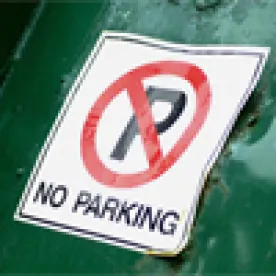In one of its noteworthy zoning decisions of late 2019, the Massachusetts Appeals Court interpreted the “two-year bar” for zoning amendments contained in M.G.L. c. 40A, § 5, sixth par. In Penn v. Town of Barnstable, the Appeals Court affirmed a summary judgment entered by the Land Court and concluded that the Town of Barnstable’s adoption of a zoning amendment calling for the creation of the Hyannis Parking Overlay District (HPOD) violated the two-year bar because the town had rejected a similar proposal just a few months earlier.
In an effort to create uniformity and resolve discrepancies in the management of parking spaces in and around Hyannis Harbor, a subcommittee of the Barnstable Town Council proposed in December, 2015 to amend the town’s zoning ordinance to create the HPOD. The proposed amendment, identified as Item No. 2016‑54, sought to authorize as-of-right certain parking lot operations, with site-development standards governing operation of the lots within the HPOD. After a public hearing on the proposal, the Barnstable Planning Bboard voted not to recommend adoption of Item No. 2016‑54. The Town Council then rejected the proposed amendment in a split vote in March, 2016.
A few weeks later the Town Council docketed a new zoning proposal concerning parking, Item No. 2016‑166, and scheduled it for a public hearing on July 21, 2016. Item No. 2016‑166 differed from Item No. 2016‑54 in three ways, but the new proposal also dealt with the management of commercial parking. After this public hearing the Planning Board voted to recommend approval of Item No. 2016‑166. The Town Council then voted that Item No. 2016‑166 was “not a proposed zoning ordinance . . . previously acted upon unfavorably” as Item No. 2016‑54, and voted to adopt Item No. 2016‑166. Neighboring homeowners challenged the Town Council’s adoption of Item No. 2016‑166, arguing, among other things, that the vote was invalid under M.G.L. c. 40A, § 5, sixth par., because it came within two years of the council’s rejection of Item No. 2016‑54.
The statute states:
No proposed zoning ordinance or by-law which has been unfavorably acted upon by a city council or town meeting shall be considered by the city council or town meeting within two years after the date of such unfavorable action unless the adoption of such proposed ordinance or by-law is recommended in the final report of the planning board.
Citing the 1961 Supreme Judicial Court (SJC) decision Kitty v. Springfield, the Appeals Court noted that the purpose of the two-year bar is to “give some measure of finality to unfavorable action taken by a municipal legislative body.” In Kitty, the SJC construed the two-year bar to apply to “any new action of the same character” as a previously defeated proposal. Because no reported decision had addressed what it means for proposals to be “of the same character” for these purposes, the Appeals Court examined cases decided in two analogous contexts. The court concluded that proposed ordinances and bylaws are sufficiently identical “if they share the same fundamental or essential character, with little substantive difference.” Applying that standard, the Appeals Court concluded that Item No. 2016‑166 was essentially the same as Item No. 2016‑54 because the new proposal “did not change the fundamental and essential character of the item – to allow for as‑of‑right operation of commercial parking lots through creation of the HPOD.”
Unlike the situation presented by M.G.L. c. 40A, § 16 (barring reconsideration within two years of a rejected application for a variance or special permit), where the bar does not apply if the permit-granting authority finds there are “specific and material changes” in the new proposal, M.G.L. c. 40A, § 5, sixth par., gives the municipal legislative body no role in deciding whether a proposed ordinance is the same as one previously rejected. If the two proposals are fundamentally and essentially the same, a proposed zoning bylaw or ordinance cannot be enacted within two years of being rejected by the municipal body.
On December 23, 2019 the SJC denied the Town of Barnstable’s petition for further appellate review, so the Appeals Court’s decision in Penn is now final.



 />i
/>i

